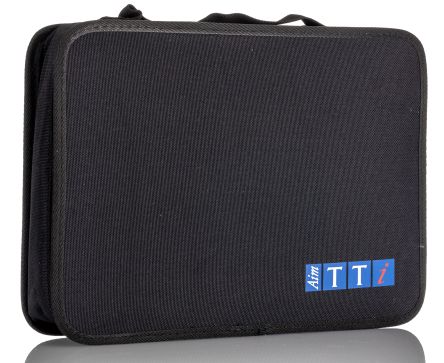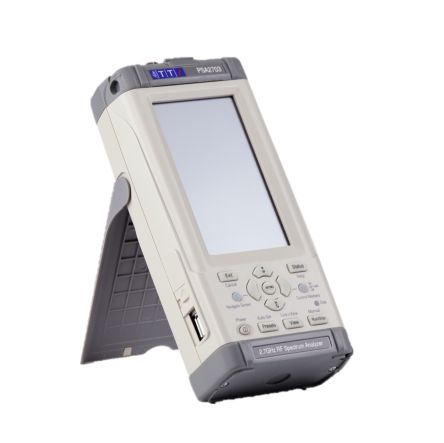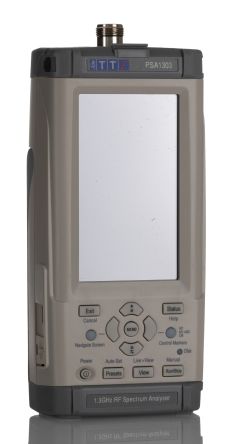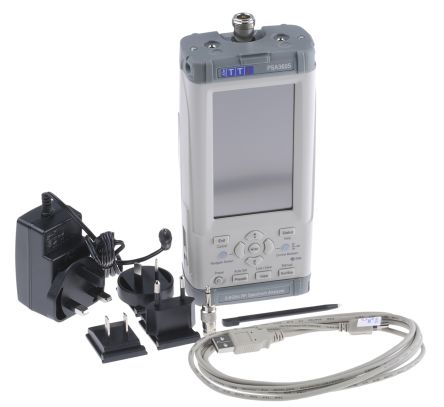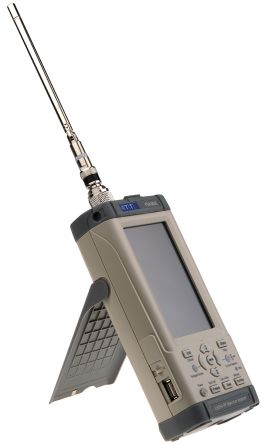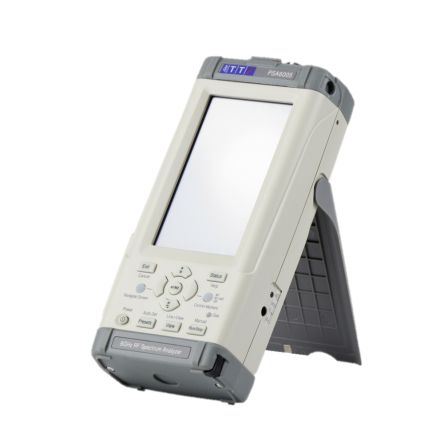- Automation & Control Gear
- Cables & Wires
- Enclosures & Server Racks
- Fuses & Circuit Breakers
- HVAC, Fans & Thermal Management
- Lighting
- Relays & Signal Conditioning
- Switches
- Batteries & Chargers
- Connectors
- Displays & Optoelectronics
- ESD Control, Cleanroom & PCB Prototyping
- Passive Components
- Power Supplies & Transformers
- Raspberry Pi, Arduino, ROCK, STEM Education & Development Tools
- Semiconductors
TTI Spectrum Analysers
Spectrum analysers are widely used within the electronics industry for analysing the frequency spectrum of radio frequency, RF and audio signals. Looking at the spectrum of a signal they are able to reveal elements of the signal, and the performance of the circuit producing them. They are able to make a large variety of measurements and this means that they are an invaluable tool for the RF design development and test laboratories, as well as having many applications for specialist field service.
-
Spectrum analysers are an invaluable item of electronic test equipment used in the design, test and maintenance of radio frequency circuitry and equipment. They are used for observing signals in the frequency domain. Thus a spectrum analyser will display the amplitude of signals on the vertical scale, and the frequency of the signals on the horizontal scale.
Types of Spectrum Analysers
Swept spectrum analysers: Sweeping the frequency that is analysed across the required band to produce a view of the signals with their relative strengths. The type that is most widely used.Fast Fourier Transform, FFT analysers: Converting the signals into a digital format for analysis digitally. More expensive and specialised.Real-time analysers: Form of FFT analyser. Requiring much larger buffers and more powerful processing, these types are able to offer the top performance in signal analysis.Audio spectrum analyser: Focussed on audio frequencies, this means that low-frequency techniques can be adopted. This makes them much cheaper. It is even possible to run them on PCs with a relatively small amount of hardware.Spectrum analysers tend to fall into 4 form factors:Benchtop - can be plugged into AC power, which generally means in a lab environment or production/manufacturing area.Portable – can be taken outside to make measurements or simply carried while in use.Handheld - needs to be very light and small. Networked - ability to connect the analyser to a network
Spectrum Analyser Tips
Beware input level: One major cause of damage is the input mixer being blown when the analyser is measuring high power circuits.Determine if spurs are real.Wait for self-alignment: When first switched on, it goes through its software boot-up procedure and, undertakes a number of self-test and calibration routines.
